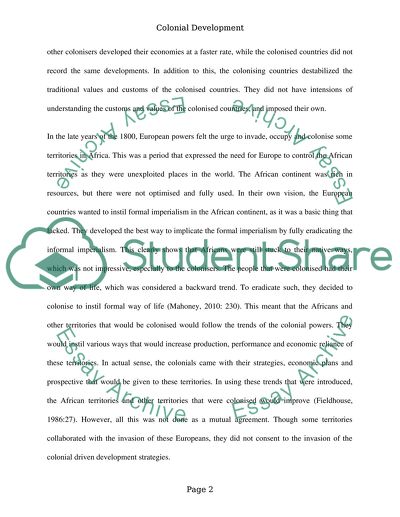Cite this document
(“To what extent was colonial development driven by domestic (coloniser) Essay”, n.d.)
To what extent was colonial development driven by domestic (coloniser) Essay. Retrieved from https://studentshare.org/sociology/1464894-to-what-extent-was-colonial-development-driven-by
To what extent was colonial development driven by domestic (coloniser) Essay. Retrieved from https://studentshare.org/sociology/1464894-to-what-extent-was-colonial-development-driven-by
(To What Extent Was Colonial Development Driven by Domestic (coloniser) Essay)
To What Extent Was Colonial Development Driven by Domestic (coloniser) Essay. https://studentshare.org/sociology/1464894-to-what-extent-was-colonial-development-driven-by.
To What Extent Was Colonial Development Driven by Domestic (coloniser) Essay. https://studentshare.org/sociology/1464894-to-what-extent-was-colonial-development-driven-by.
“To What Extent Was Colonial Development Driven by Domestic (coloniser) Essay”, n.d. https://studentshare.org/sociology/1464894-to-what-extent-was-colonial-development-driven-by.


